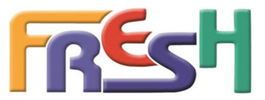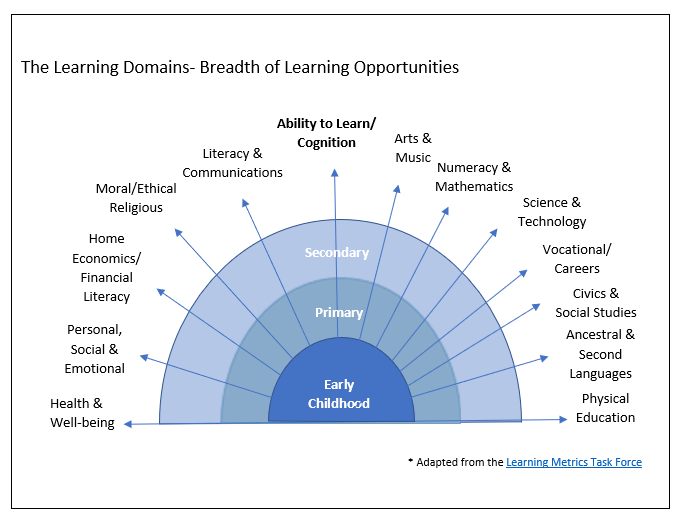A broad set of learning opportunities must be provided to all students if they are to learn about the inter-connections among their lives, their planet and their futures. We can no longer accept that teaching and learning is reduced to a narrow set of specialized disciplines and selected core subjects and confined to classroom-based teaching & learning.
One of the FRESH Partners, Education International, representing the world’s teachers and the Brookings Institution have published a report (Anderson et al, 2018) as well as national and school-level planning tools to promote this much needed breadth of learning opportunities. A technical paper underpinning begins by noting that the UN 2030 goal "has made a commitment to high-quality education for every child and young person".
This need for a wide breadth of learning opportunities is now recognized by two leading global education agencies, OECD and UNESCO. However, we should be careful to ensure that both the breadth of opportunities is sufficient and that the opportunities are provided to all students. The breadth been recognized by the OECD Education 2030 – Learning Compass initiative (OECD, 2019) when it "recognises the intrinsic value of learning by elaborating a wide range and types of learning within a broad structure, and acknowledges that learning does not only happen in school." However, the OECD Learning Compass is less clear about ensuring that all students benefit. The emphasis is on "student agency", enabling "individual learners" to use the compass to find their way towards a "collective well-being".
This breadth of leaning opportunities was also recognized as a starting point in the development of Target 4.7 of the 2030 Sustainable Development Goals (Learning Metrics Task Force, 2013). This task force defined seven "learning domains" to depict this necessary range of learning opportunities. This is a good starting point in defining the necessary breadth. However, there are are other domains that need to be considered since they already form part of the crowded landscape in schools. The additional domains include character/moral/religious development, financial literacy, exploration of careers & vocations, social studies and ancestral/second languages.
The FRESH Working Group on Health Literacy, Life Skills & Social Inclusion has added these domains in a diagram to show a wider range of learning opportunities that is often reflected in the core subjects offered by most countries. As well, the FRESH Framework and Partners have elaborated on the learning that occurs outside of the classroom. This learning occurs in less formal and extended education programs such as , extra-curricular and co-curricular activities, school routines, in the community and online. Please click on web link to the FRESH info-graphic showing these many types of extended education opportunities as well as the core list of subjects/curricula. This info-graphic illustrates how teaching & learning about health, personal & social development can and does occur inside and outside of classrooms.
Sources:
One of the FRESH Partners, Education International, representing the world’s teachers and the Brookings Institution have published a report (Anderson et al, 2018) as well as national and school-level planning tools to promote this much needed breadth of learning opportunities. A technical paper underpinning begins by noting that the UN 2030 goal "has made a commitment to high-quality education for every child and young person".
This need for a wide breadth of learning opportunities is now recognized by two leading global education agencies, OECD and UNESCO. However, we should be careful to ensure that both the breadth of opportunities is sufficient and that the opportunities are provided to all students. The breadth been recognized by the OECD Education 2030 – Learning Compass initiative (OECD, 2019) when it "recognises the intrinsic value of learning by elaborating a wide range and types of learning within a broad structure, and acknowledges that learning does not only happen in school." However, the OECD Learning Compass is less clear about ensuring that all students benefit. The emphasis is on "student agency", enabling "individual learners" to use the compass to find their way towards a "collective well-being".
This breadth of leaning opportunities was also recognized as a starting point in the development of Target 4.7 of the 2030 Sustainable Development Goals (Learning Metrics Task Force, 2013). This task force defined seven "learning domains" to depict this necessary range of learning opportunities. This is a good starting point in defining the necessary breadth. However, there are are other domains that need to be considered since they already form part of the crowded landscape in schools. The additional domains include character/moral/religious development, financial literacy, exploration of careers & vocations, social studies and ancestral/second languages.
The FRESH Working Group on Health Literacy, Life Skills & Social Inclusion has added these domains in a diagram to show a wider range of learning opportunities that is often reflected in the core subjects offered by most countries. As well, the FRESH Framework and Partners have elaborated on the learning that occurs outside of the classroom. This learning occurs in less formal and extended education programs such as , extra-curricular and co-curricular activities, school routines, in the community and online. Please click on web link to the FRESH info-graphic showing these many types of extended education opportunities as well as the core list of subjects/curricula. This info-graphic illustrates how teaching & learning about health, personal & social development can and does occur inside and outside of classrooms.
Sources:
- Kate Anderson, Helyn Kim, Seamus Hegarty, Martin Henry, Esther Care, Rachel Hatch, Joyce Kinyanjui, Francisco Cabrera-Hernández (2018) Breadth of Learning Opportunities, Center for Universal Education at Brookings, Education International
- Learning Metrics Task Force (2013) Towards Universal Learning, UNESCO Institute for Statistics, Brookings Institution
- OECD (2019) Future of Education and Skills 2030: Conceptual learning framework. Learning Compass 2030, Paris, OECD
- FRESH Working Group on Health Literacy, Life Skills & Social Inclusion (2019) Diagram Depicting Expanded Number of Learning Domains, FRESH Partners
- FRESH Working Group on Health Literacy, Life Skills & Social Inclusion (2018) Info-graphic Showing Scope of HPSD Education, FRESH Partners

